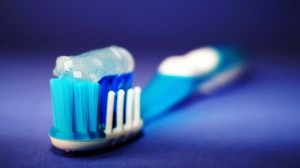 If your gums bleed when you brush, this could be a symptom of gingivitis, an early form of gum disease. Gingivitis is easily treated, so if you let your dentist know as soon as possible, you can prevent it from developing into more serious forms of periodontitis, which could require deep cleaning or even gum surgery.
If your gums bleed when you brush, this could be a symptom of gingivitis, an early form of gum disease. Gingivitis is easily treated, so if you let your dentist know as soon as possible, you can prevent it from developing into more serious forms of periodontitis, which could require deep cleaning or even gum surgery.
Causes and Symptoms of Gum Disease
A wide variety of bacteria naturally lives in your mouth. These bacteria can build up if you do not practice good oral hygiene. Sugary drinks and sticky foods cling to the teeth, providing nutrients for these bacteria. As they multiply, they can cause inflammation in the gum tissue, causing the gums to draw back from the tooth roots. Your dentist evaluates the condition of your gums during regular visits by measuring the pockets around your teeth.
Some symptoms to watch out for that could indicate gum disease include:
- Swelling or redness in the gums
- A shiny or purple look to the gums
- Pus or pimple-like growths
- Extreme sensitivity
- A bad taste in the mouth
- Persistent bad breath
- Bleeding when you brush your teeth
Bleeding when you brush is one of the earliest symptoms of gingivitis. If you do notice your gums bleeding, be sure to mention this to your dentist.
Treatment for Gum Disease
The main way to deal with gum disease is through prevention. Maintaining good oral health means regular dental hygiene and twice-yearly visits to the dentist. If your dentist does diagnose gingivitis or gum disease, you might require treatment.
Treatment for gum disease can include:
- Antibacterial toothpaste or mouthwash
- Antibiotics
- Deep cleaning techniques such as planing and scaling
- Gum surgery
- Gum grafting
The more serious your gum disease is, the more invasive your treatment will be. Very serious gum disease requires gum grafting, in which infected gum tissue is removed and replaced with tissue from the roof of your mouth. Shoring up the gumline in this way provides the necessary support and foundation for your tooth roots, and can prevent long-term tooth loss.
For more information, contact our office today.
